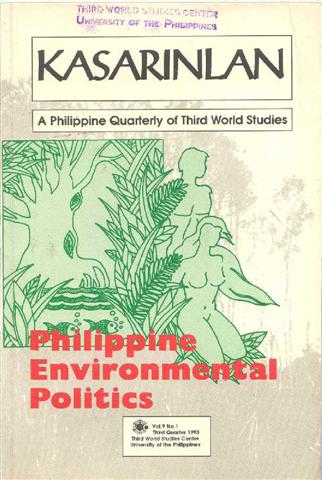Competition and Dispute Settlement for Fishery Resources: A case study of Property Regimes in Sarangani Bay
Abstract
The study examines the depletion of fishery resources in Sarangani Bay by describing the property regimes in the area and how these regimes manipulate dispute settlement processes in order to control fishery resources. The four property regimes of Sarangani Bay are the open access property regime wherein the resources are open to anyone; the state property regime; the private property regime that comprises local fishers and the fishing industries; and the common property regime, which consists of fishing communities. All these regimes participate in managing and controlling fishery resources and allocating fishing rights. A major cause of depletion is the level of uncertainty on how disputes are settled. Two major legal traditions are followed in dispute settlements: the state legal code and local codes based on culture, ethnicity, and religion. Stakeholders use both competitive and cooperative strategies in dispute resolution. The state property regime is weak and inefficient in managing fishery resources, settling disputes, and enforcing laws. The study argues that the stakeholders can exploit the state’s weakness by manipulating state processes in order to protect their interests. For instance, some of them pressure the state or cooperate with NGOs in order to gain access to fishery resources. They are likely to select dispute settlement processes that will ensure the greatest degree of advantage to them. Private property and common property regimes are more successful in controlling fishery resources for their own interest. Meanwhile, fishers (producers) are frequently victimized by classifiers and financiers and hindered by the state from asserting their rights. This makes the dispute settlement outcome more competitive and uncertain, and consequently reduces the supply of fishery resources. Aside from understanding the power dynamics of Sarangani Bay, the stakeholders should make use of dispute settlement processes that increase participation and debate and promote cooperative strategies.
Published
2008-06-11
How to Cite
OLIVE, Steve.
Competition and Dispute Settlement for Fishery Resources: A case study of Property Regimes in Sarangani Bay.
Kasarinlan: Philippine Journal of Third World Studies, [S.l.], v. 9, n. 1, june 2008.
ISSN 2012-080X.
Available at: <https://journals.upd.edu.ph/index.php/kasarinlan/article/view/933>. Date accessed: 29 aug. 2025.
Section
Features
Keywords
property regimes, institutional arrangements, dispute settlement, weak state, fishery resources, local government units
By submitting a manuscript, the authors agree that the exclusive rights to reproduce and distribute the article have been given to the Third World Studies Center.



